Wed like to acknowledge Sharon Salzberg for blazing the trail of loving-kindness in the West. She has been at the frontier of teaching and practicing loving-kindness for decades. Without her work, and the work of her teachers before her, this book would not exist. Thank you.
Brantley is a licensed marriage and family therapist who has maintained a private psychotherapy practice since 1983. She is co-owner of Seeds of Kindness, a business that makes loving-kindness prayer beads. You can learn more about Brantleys loving-kindness prayer beads at www.seedsofkindness.biz.
Conclusion
Going Forward
Loving-kindness doesnt end when you read the last line of this book; it can continue to be a part of your life for as long as you live. Why not make friends with yourself? Why not find a way to drop the negative self-talk and learn to trust the power of your own kindness? Why not let the wisdom that comes from this practice inform your life and free your mind?
We all have the gift of loving-kindness inside us. Loving-kindness meditation is a road map that shows us how to nurture and share this gift. Give yourself a chance to let this practice become a part of your inner life. As you let yourself feel your warmth and good-heartedness, your kindness will naturally spread out into the world.
We offer a deep bow to you for trying to bring loving-kindness meditation into your life. No matter what your effort has been, its exactly what it needed to be. Once loving-kindness has touched your consciousness, it is hard to forget. Always know that in any situation, especially one of fear and worry, you now have a place you can rest your mind.
May you find peace.
May the wisdom of this practice penetrate your heart.
May all beings be well and happy.
May we each share our bright and wondrous nature for the benefit of all beings.
Publishers Note
This publication is designed to provide accurate and authoritative information in regard to the subject matter covered. It is sold with the understanding that the publisher is not engaged in rendering psychological, financial, legal, or other professional services. If expert assistance or counseling is needed, the services of a competent professional should be sought.
Distributed in Canada by Raincoast Books
Copyright 2008 by Mary Brantley and Tesilya Hanauer
New Harbinger Publications, Inc.
5674 Shattuck Avenue
Oakland, CA 94609
www.newharbinger.com
Cover design by Amy Shoup; Text design by Amy Shoup and Michele Waters-Kermes; Acquired by Melissa Kirk
All Rights Reserved. Printed in the United States of America.
Epub ISBN: 9781608825431
The Library of Congress has cataloged the print edition as:
Brantley, Mary.
The gift of loving-kindness : 100 meditations on compassion, forgiveness, and generosity / Mary Brantley and Tesilya Hanauer.
p. cm.
ISBN-13: 978-1-57224-562-4 (pbk. : alk. paper)
ISBN-10: 1-57224-562-X (pbk.)
1. Sympathy. 2. Compassion. 3. Forgiveness. 4. Generosity. 5. Meditation. I. Hanauer, Tesilya. II. Title.
BF575.S9B73 2008
177.7--dc22
2008027636

To my husband, Jeff, for his love, wisdom, and heartfelt support, and for the blessings of our twenty-six years of marriage.
MB
To Lua, Ryan, Zeya, Lucan, Rainier, Luna Trinity, and all the other children in my life. May you always know you are loved.
TH
Introduction to Loving-Kindness Meditation
What Is Loving-Kindness?
Loving-kindness means great friendliness to self and others. Loving-kindness meditation, which fosters the growth and development of this quality of being, is easy to learn. Practicing loving-kindness sheds light on our own innate goodness. Kindness and compassion are qualities that live within all of us. You dont buy them or own themyou live them. Loving-kindness practice helps develop positive feelings and lets us embrace all aspects of ourselves and others unconditionally. It fosters a self-discovery that teaches us how to be a true friend to ourselves and others, and shows us how to meet our inner critic with love instead of hate.
The simplest explanation of loving-kindness meditation is that you repeat a series of phrases aimed at yourself, a loved one, a person you feel neutral about, a difficult person, and, finally, all living things, with the intention of generating great friendliness for yourself and others. For example, you might direct the following loving-kindness phrases toward yourself:
May I be happy.
May I be healthy.
May I be peaceful.
May I be safe.
Of course, theres more to it than that, and in the following pages well explain the intricacies of this meditation practice.
In Loving-Kindness: The Revolutionary Art of Happiness (Shambhala, 1995), Sharon Salzberg writes that by practicing loving-kindness we learn to cultivate the goodmeaning we discover the incredible power of love present within each of us. She goes on to say that in order to access this power, we must overcome our limited view of our own potential and rediscover a more expansive view of what is possible for us.
Salzberg believes this can be achieved and sustained through spiritual practice. This book is an invitation to practice that kindness toward yourself and others.
Loving-kindness meditation as we present it is not only a technique, its also a way to approach life. It can help you break mental habits of meanness and self-judgment, and it allows your mind to rest from the everyday push and pull of the past and the future. This practice has the potential to make you feel safe and at ease inside your own skin.
At times, life may be stressful, relationships difficult, or health worrisome. Loving-kindness gives you a way to have a different relationship to fears from within and threats from outside. The most inspiring aspect of this practice is how it reveals that you already harbor a place of peace and great strength within. You just have to wake it up. The exercises in this book will help you do that.
Loving-kindness is all-inclusive; it leaves no one out of your heart. Greatness of heart is a feeling we can all cultivate. Loving-kindness meditation is a road map for how to be in the world and how to experience inner peace and happiness.
An Ancient Practice
Loving-kindness meditation, sometimes called metta, or maitri, meditation, is an ancient practice that comes from the teachings of the Buddha. It is said that the Buddha first taught this meditation as an antidote to fear. According to legend, he was in a forest with a group of monks, and sent them off to meditate. The forest was full of tree spirits who resented the monks coming into their territory. When night fell, the tree spirits scared the monks by making loud noises, creating bad smells, and appearing as ghoulish figures. The monks ran back to the Buddha asking to be sent someplace else to meditate.


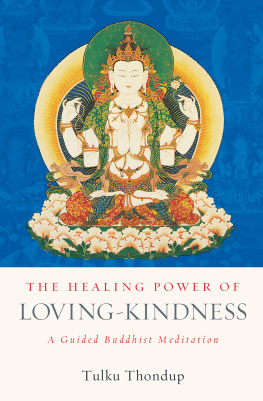
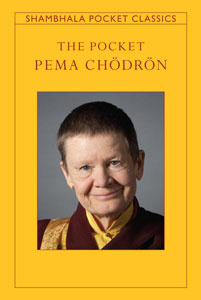


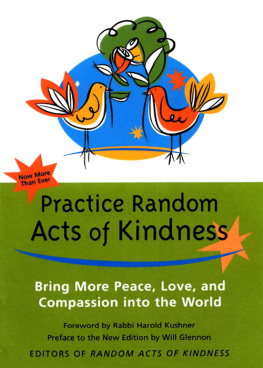


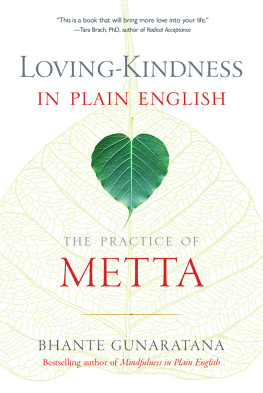



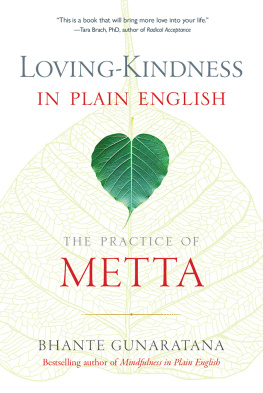
 Mary Brantley, MA, LMFT, teaches mindfulness-based stress reduction (MBSR) and loving-kindness meditation at Duke Integrative Medicine. She participated in a seven-day professional training in MBSR under the direction of Jon Kabat-Zinn, Ph.D., and Saki F. Santorelli, Ed.D. Brantley has practiced meditation for more than twenty-five years and attends yearly intensive retreats.
Mary Brantley, MA, LMFT, teaches mindfulness-based stress reduction (MBSR) and loving-kindness meditation at Duke Integrative Medicine. She participated in a seven-day professional training in MBSR under the direction of Jon Kabat-Zinn, Ph.D., and Saki F. Santorelli, Ed.D. Brantley has practiced meditation for more than twenty-five years and attends yearly intensive retreats. Tesilya Hanauer, CMT, is a freelance writer and certified massage therapist. She received her massage training at Heartwood Institute in northern California, where she also studied Iyengar yoga. She lives in the San Francisco Bay Area.
Tesilya Hanauer, CMT, is a freelance writer and certified massage therapist. She received her massage training at Heartwood Institute in northern California, where she also studied Iyengar yoga. She lives in the San Francisco Bay Area.